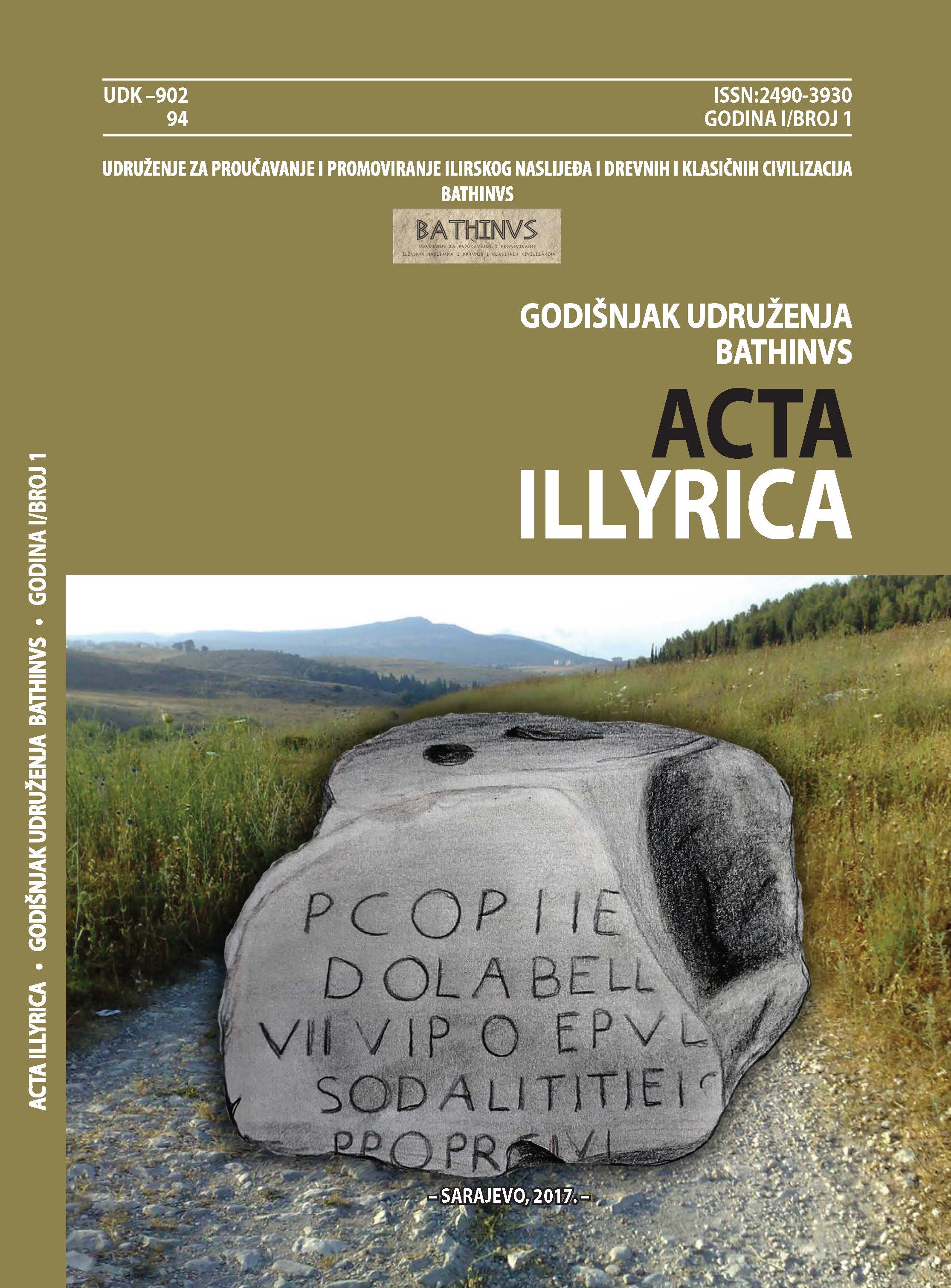Oktavijanovo osvajanje Zapadnog Ilirika u djelima kasnoantičkih autora
Octavian’s conquest of the western Illyricum in the works of the authors from Late Antiquity
Author(s): Edin VeletovacSubject(s): History, Military history, Political history, Ancient World
Published by: Udruženje za proučavanje i promoviranje ilirskog naslijeđa i drevnih i klasičnih civilizacija “BATHINVS”
Keywords: late antiquity; Octavian; Tiberius; Western Illyricum; Pannonia; Dalmatia; Rufus Festus; Jerome; Jordanes; Eutropius;
Summary/Abstract: Apart in the works of authors from the Principate period, we find interesting and significant information about military operations in Western Illyricum under Octavian Augustus (35 BC – 9 AD) in the works of Late Antiquity authors, such as Eutropius, Jerome, Rufus Festus and Jordanes. The main characteristics of this information depending on the author are generalisation, brevity and simplification. Eutropius would belong to the first group, where we can see that the assertions he brings forth regarding these events are of general character but quite accurate at the same time. We also notice that Tiberius’s Bellum Pannonicum did not receive full credit since Eutropius mentions him incidentally in the account of Drusus’s Germanic campaign. Unlike Eutropius, Jerome presents information in a very brief manner, in the spirit of chronicles. Although admittedly he included all three operation phases in Western Illyricum in his work, we should note that the chronological segment is not satisfactory because many events do not correspond to actual dates. One of the reasons could be that this Christian author was misled by more significant events in certain cases. For example, he identified the year of Tiberius’s Germanic triumph with the time when he was awarded triumphal insignia for his victories in Pannonia. Unlike these two authors, Rufus Festus and Jordanes have the tendency to consciously or unconsciously simplify a situation. Despite giving a somewhat detailed insight, they tend to reduce a whole series of events to a single conflict or person (which usually had a minor role), thereby unrightfully leaving out the merits of the highest military officials, Tiberius in this case, which is the most evident in the reports regarding the war in Pannonia or the Great Illyrian Revolt. The information observed in isolation does not offer especially useful data, apart from some exceptions, as in the case of Festus’s citations regarding the subjugation of the Amantini and Pannonian king Bato. We can claim that Festus is in fact the only author of the aforementioned ones who to some extent shares new information about these events. This is not the case with other three sources. In order to use them in a wider context, we need to combine their assertions with other sources from the Principate without reducing their value. Moreover, it is reasonable to doubt the credibility of assertions brought forth by some Late Antiquity authors. This is observable in the example of Jordanes who mentions a certain king of the Amantini while discussing the conquest of Pannonia, although this person is nowhere to be mentioned, neither by Rufus Festus from whom Jordanes assumed the original information, nor by other ancient and Late Antiquity sources.
Journal: Godišnjak Udruženja BATHINVS “Acta Illyrica”
- Issue Year: I/2017
- Issue No: 1
- Page Range: 148-167
- Page Count: 20
- Language: Bosnian

